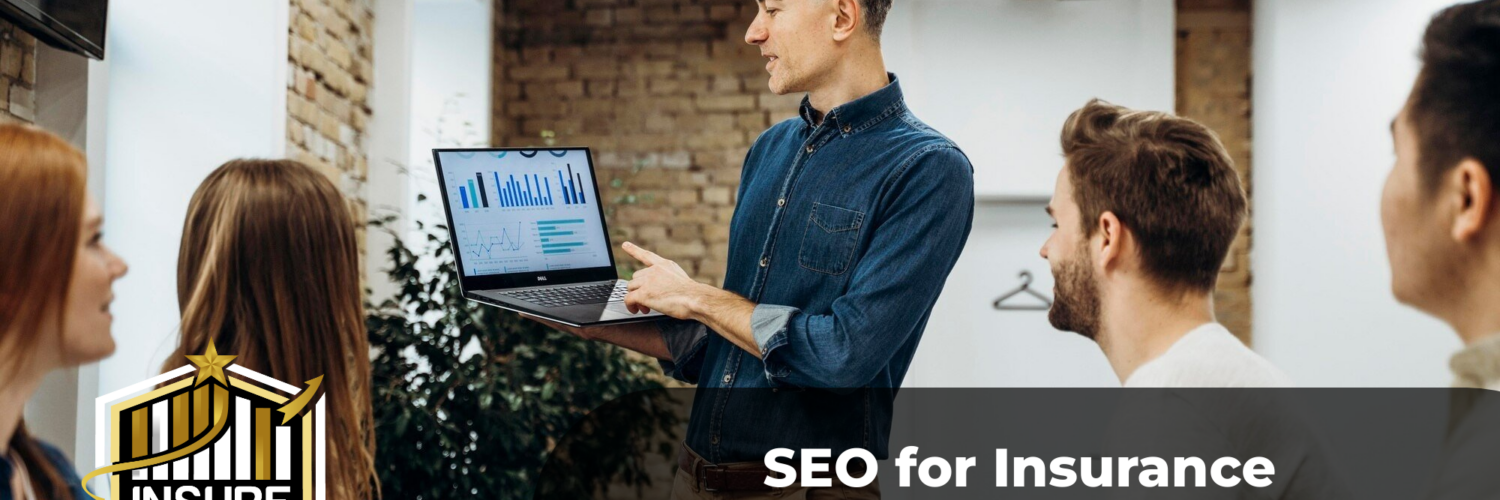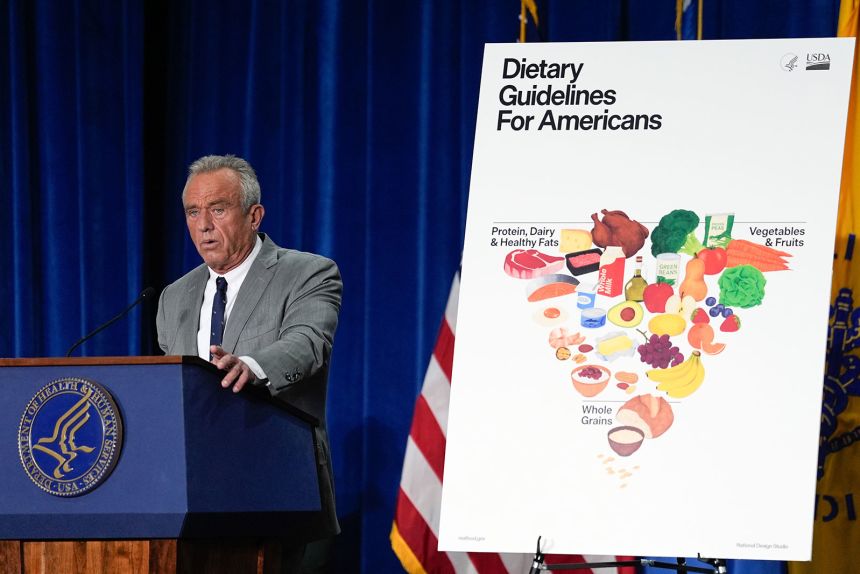As we move deeper into 2025, insurance professionals face a digital landscape that’s more competitive—and more opportunity-rich—than ever before. With nearly every potential client beginning their search for coverage online, mastering Search Engine Optimization (SEO) has become a critical growth tool for insurance agents and agencies.
SEO isn’t just about ranking high in search results. It’s about reaching the right people, in the right place, at the right time, and creating a trustworthy online presence that turns curious searchers into loyal policyholders.
In this guide, we’ll walk through the most effective and current SEO best practices for insurance agents, covering everything from local optimization and content strategy to technical tweaks and conversion tactics.
Why SEO Matters More Than Ever in 2025
Digital-first behavior isn’t just a trend—it’s the new norm. And in 2025, that shift is accelerating faster than ever before. According to the Insurance Information Institute, more than 75% of insurance shoppers now turn to online research before they ever speak to an agent or request a quote.
That means your online presence is no longer a “nice-to-have”—it’s the first impression most prospects will have of your agency. And if you’re not ranking on the first page of Google for relevant terms, you’re likely invisible to the majority of potential clients.
Compounding this challenge is the way Google’s algorithm continues to evolve. It no longer rewards keyword stuffing or outdated tactics. Instead, it prioritizes:
- User experience (Is your site fast, mobile-friendly, and easy to navigate?)
- Content relevance (Does your content match the searcher’s intent?)
- Authority and trust (Do you have backlinks, reviews, and useful resources?)
Insurance agencies that focus on strategic, audience-first SEO are the ones seeing the best returns—both in traffic and in trust.
So, why does SEO matter more than ever for insurance agencies in 2025? Because it helps you:
✅ Rank for valuable, high-intent search terms
Not all web traffic is created equal. SEO ensures you’re showing up for the searches that matter—like “best homeowners insurance in [City]” or “independent life insurance broker near me.” These are high-intent queries, often made by people ready to act. Ranking for them means being in the right place at the right time.
✅ Reduce reliance on paid ads
Google Ads are effective—but they can be expensive, especially in competitive insurance markets. SEO offers a sustainable, long-term solution that keeps working for you even after you’ve stopped spending. Once you rank, you can generate leads 24/7 without paying for every click.
✅ Attract more qualified leads
SEO helps filter out the noise. By optimizing your content around specific services, regions, and buyer needs, you’re attracting visitors who are actually looking for what you offer—not just browsing. These are the types of leads that convert.
✅ Build credibility and brand trust
Ranking high in organic search results isn’t just about visibility—it’s about authority. When people see your agency listed alongside national names, it sends a signal: “This company knows what they’re doing.” Add in helpful blog posts, testimonials, and localized content, and you become a resource—not just another option.
✅ Support your broader digital marketing for insurance agencies strategy
SEO is the foundation of your digital ecosystem. It connects seamlessly with your email marketing, social media, and PPC campaigns. The traffic it brings can fuel retargeting ads, grow your email list, and give you insights that guide every other part of your marketing.
In 2025, SEO isn’t just about climbing the rankings—it’s about earning the right kind of attention. And for insurance agencies looking to scale sustainably, it’s one of the smartest investments you can make.
📈 Ready to put SEO to work for your agency?
👉 Partner with Insure Brand Success and build a strategy that earns trust, drives traffic, and delivers real results.

1. Prioritize Local SEO to Win Your Market
For insurance agents, local visibility is everything. Most clients prefer working with someone they can meet in person or who understands their specific regional risks.
Key Local SEO Tactics:
- Google Business Profile Optimization: Fill out all details, including business hours, services, and service areas. Encourage clients to leave reviews and respond to them promptly.
- Localized Content: Create city- or region-specific pages (e.g., “Auto Insurance in Tampa”) and blog content that references local needs or events.
- Local Link Building: Get listed in directories and local business networks.
- NAP Consistency: Ensure your Name, Address, and Phone Number are consistent across all platforms.
Want help building a strong local search foundation? Explore Insure Brand Success’s SEO Solutions for Insurance for tailored support.
2. Focus on Search Intent, Not Just Keywords
In 2024, Google is all about intent—understanding what users actually want when they type a query.
Actionable Tips:
- Use tools like SEMrush or Google Keyword Planner to uncover long-tail, high-intent keywords.
- Optimize for phrases like:
- “Best homeowners insurance in [City]”
- “Commercial insurance broker for contractors”
- “Affordable family life insurance near me”
- Create content around common questions clients ask, such as “What’s the difference between term and whole life insurance?”
The better your content matches the user’s intent, the more likely you are to rank, engage, and convert.
3. Build Authority with Helpful, Expert-Level Content
Content still rules in SEO—but not just any content. Google favors in-depth, original, and well-structured pieces that provide real value.
Best Content Formats for Insurance SEO:
- How-to guides (e.g., “How to Choose the Right Auto Insurance Deductible”)
- Comparison articles (“Term vs. Whole Life: Which is Better?”)
- Location-specific resources (“What You Need to Know About Flood Insurance in Louisiana”)
- FAQs and explainer videos
This type of content builds trust, keeps visitors engaged longer, and earns backlinks—which are critical for your site’s domain authority.
Need a steady stream of quality content? Insure Brand Success insurance marketing strategies service helps agents develop and distribute compelling, SEO-rich content that gets results.
4. Optimize Your Website for Speed, UX, and Mobile
Google now uses Core Web Vitals as a ranking factor. That means if your website loads slowly or isn’t user-friendly, it could cost you valuable traffic.
Optimization Must-Dos:
- Compress images and use modern formats like WebP
- Ensure pages load in under 2.5 seconds
- Use responsive design for a seamless mobile experience
- Make CTAs clear and buttons easy to tap
If your website isn’t built for SEO performance, Insure Brand Success offers Web Design for Insurance Agencies tailored to your specific goals.
5. Use Schema Markup to Boost Visibility
Schema is a form of structured data that helps Google better understand your content—and display it in rich snippets.
Benefits of Schema for Insurance Agencies:
- Shows star ratings in reviews
- Highlights business hours and services
- Enhances local listing visibility
You can add schema using tools like Google’s Structured Data Markup Helper or through your CMS plugins.
6. Build High-Quality Backlinks Strategically
Backlinks remain one of Google’s top ranking signals. But in 2025, quality matters far more than quantity.
Effective Backlink Strategies:
- Guest posts on industry websites
- Local business collaborations
- Press releases or news features
- Publishing original research or stats
Avoid link farms or spammy directories. Instead, focus on natural, relationship-driven link-building that strengthens your reputation.
Not sure where to start? Insure Brand Success SEO for Insurance Brokers service includes ethical backlink building as part of a comprehensive SEO strategy.
7. Optimize for Voice Search and Conversational Queries
With the rise of smart speakers and voice assistants, more users are speaking their searches aloud.
Voice Search Best Practices:
- Use natural, conversational phrases in your content
- Answer questions clearly and succinctly (aim for “position zero”/featured snippets)
- Include FAQ sections on service pages
Queries like “Who’s the best insurance agent near me?” or “How much does renters insurance cost in Texas?” are increasingly common—and you should be ready to answer them.
8. Integrate SEO with Other Digital Channels
SEO doesn’t live in isolation. To maximize results, integrate it with your other marketing efforts:
- Promote blog posts through email marketing to increase traffic and shares
- Share educational articles on social media to build backlinks and engagement
- Use PPC campaigns to test keywords before committing to long-term SEO investments
This synergy creates a more consistent, omnichannel client experience—and drives stronger results across the board.
For a holistic approach, explore Insure Brand Success full suite of client acquisition and retention programs.
9. Track, Test, and Tweak for Ongoing Improvement
SEO is not a set-it-and-forget-it strategy. Use tools like Google Search Console, Google Analytics, and SEMrush to monitor performance.
Metrics to Track:
- Organic traffic and bounce rate
- Time on site and page views
- Keyword rankings and CTR
- Lead generation from organic sources
Adjust your strategy based on what the data tells you. Update underperforming pages, refresh older content, and continue A/B testing meta tags and CTAs.
10. Stay Compliant with Industry Guidelines
Insurance is a heavily regulated industry. Be sure your SEO strategy respects legal boundaries.
Compliance Tips:
- Avoid misleading claims or guarantees
- Use clear disclaimers where needed
- Link to educational, non-commercial sources such as the National Association of Insurance Commissioners or Small Business Administration’s marketing guidelines
Establishing your agency as a trustworthy, compliant resource will not only improve SEO but build lasting client loyalty.

FAQs
- Why should insurance agents prioritize SEO in 2025?
Consumer behavior is increasingly digital. More than ever, potential clients begin their search for coverage online. SEO helps your agency appear in those critical search moments—building visibility, trust, and authority. With competition growing across all insurance verticals, strong SEO ensures your agency isn’t just part of the conversation—it’s leading it. - How long does it take to see results from an SEO strategy?
SEO is a long-term investment, not a quick fix. While some technical updates (like improving page speed) can show near-immediate benefits, most strategies take 3 to 6 months to show meaningful improvements in traffic and rankings. The key is consistency—ongoing content, optimization, and monitoring will deliver compounding results over time. - What are the top local SEO tips for insurance agents?
Start by optimizing your Google Business Profile, making sure your agency name, address, and phone number are consistent across the web. Encourage satisfied clients to leave reviews and use location-specific keywords like “auto insurance in Scottsdale” in your content. Local SEO also benefits from backlinks from nearby business directories and community websites. - Can SEO help with both lead generation and client retention?
Absolutely. SEO drives lead generation by attracting high-intent traffic to your website. But it also supports client retention when your site offers helpful resources like blog posts, policy explainers, and renewal reminders. A client-friendly website that ranks well is also one they’ll come back to—and recommend. - What’s the difference between organic SEO and paid search?
Organic SEO involves optimizing your website so it ranks naturally in search engines over time. Paid search (like Google Ads) places your listings at the top for specific keywords, but you pay per click. Both have value, and when used together—especially in a digital marketing for insurance agencies strategy—they can amplify results. - What kind of content works best for SEO in insurance?
Informative, specific, and locally relevant content works best. Think: “How to File a Home Insurance Claim in Florida” or “Top 5 Mistakes First-Time Life Insurance Buyers Make.” Also, evergreen resources like FAQs and coverage guides build lasting SEO value and trust. - Is blogging still worth it in 2025?
Yes—especially for insurance agents. Blogging helps you rank for long-tail keywords, answer client questions, and demonstrate your expertise. Regular blog updates also signal to search engines that your site is active, which can improve rankings. - Do backlinks still matter for insurance SEO?
Yes, but quality matters more than quantity. Backlinks from credible sources—like local news sites, trade associations, or financial blogs—act as trust signals to Google. They show your agency is recognized by others, which boosts your authority in search results. - How do I track if my SEO strategy is working?
Use tools like Google Analytics and Search Console to monitor metrics such as organic traffic, bounce rate, time on site, and keyword rankings. Also track leads—quote requests, form submissions, or call tracking—from organic sources to understand how SEO impacts your pipeline. - Can I handle SEO myself, or should I hire a specialist?
You can certainly start with the basics—like updating meta tags or writing blog content. But to see real, sustainable results, especially in a competitive market, partnering with an expert like Insure Brand Success ensures your SEO strategy is comprehensive, current, and tailored to the insurance industry.





